Why Classic 'Doctor Who' Is a Must-See for a Modern Whovian
Or any sci-fi geek for that matter
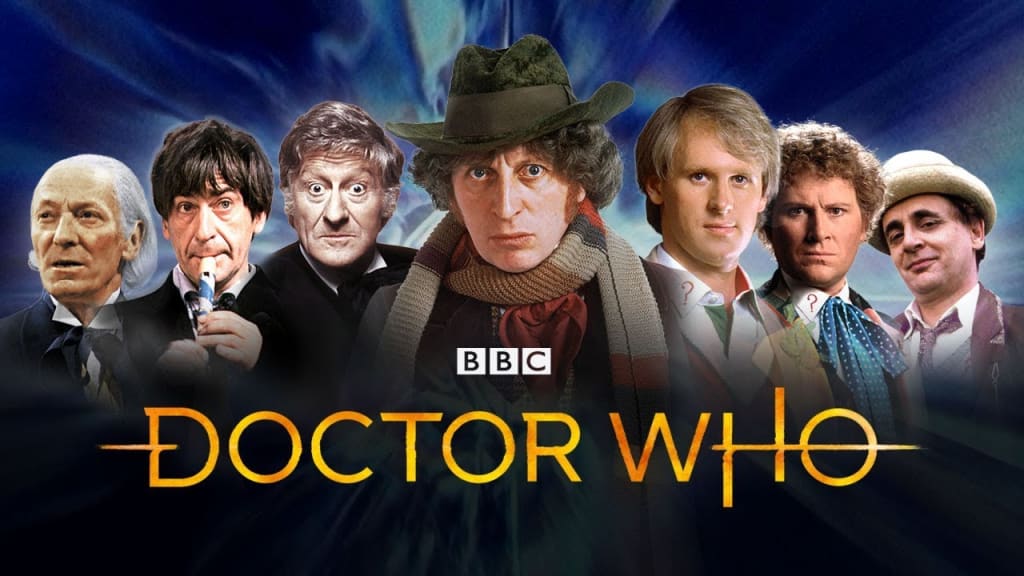
The 2005 revival of Doctor Who became widely popular, and won many fans among people who never even heard of the “classic” series.
Some more ardent admirers even waded into this piece of TV history only to find out that, compared to the reboot, it seems somewhat slow, dated, to say nothing about largely missing. I must admit, watching stills with poor sound is an ambiguous experience, but here are some things that make it very rewarding.
You will experience time travel.
You can live through thirty-six years of television in one summer! You can watch tropes emerge and retire, you see special effects progress from papier-mâché ants to the first crude computer graphics. And if you are a true sci-fi geek, you won’t let such trivial things as a bit of fishing line showing here and there stand in a way of a good story.
And then, when one of the lost episodes is found—it’s an unparalleled experience. I mean, when a new episode of your show comes out—that’s great. But imagine something that was considered lost forever being retrieved, and you are among those who watch it for the first time since the 60s? That’s the closest we've got to time travel so far.
You see the character development, and that will give you an opportunity to appreciate the subtleties of the work each subsequent actor inhabiting the role puts into making their Doctor new, and recognizable at the same time—and that extends to the revival era as well.
Almost forgot: you will know why Doctor Who is called Doctor Who.
You'll appreciate Easter eggs and tributes.
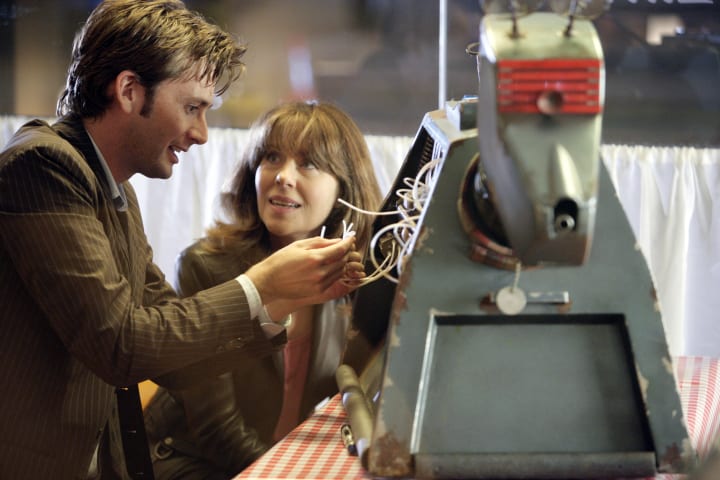
You do get a twinkle in your eye when you realize the good Cyberman (“Death in Heaven”) is, in fact, Lethbridge-Stewart, because for you it’s not a vague reference, but a beloved character. And as he saves his daughter, and the Doctor salutes him, we can imagine his aged face behind the cyber helmet. You recognize Sarah-Jane and K9 in the “School Reunion,” and, I daresay, you are deeply moved when you know the backstory. Tom Baker’s cameo as gallery curator in “The Day of the Doctor” is precious, because you recognize him and are happy to see an old friend.
To say nothing about the fiends—the Daleks, the Cybermen, the Silurians, the Sontarans, and the Master, who all have a rich history within the show, and their own relationships with the Doctor’s various incarnations.
You do feel nostalgic as you see all (then) 11 Doctors lined up in “The Day of the Doctor” special, dreaming of their lost home planet. You can only see their backs, and although you probably know which one is which, only if you saw the entire series do you experience this image fully. For you, it’s not simply a nod to the series’ decades-long heritage. In your head they are all individuals, each of the Doctor’s regenerations is a full-fledged character whom you saw come to life, develop, and regenerate to become the next one. They have stories and sorrows of their own, they lost companions (often tragically), and they had their endearing quirks. That scene is pretty powerful, and I must admit I was close to tears while watching it.
The last, but not the least treat is, of course, the return of the very first Doctor in “Twice upon a time.” Although the character is played by another actor (alas, time-travel is not invented on Earth just yet), it rings true, and is heartwarmingly recognizable.
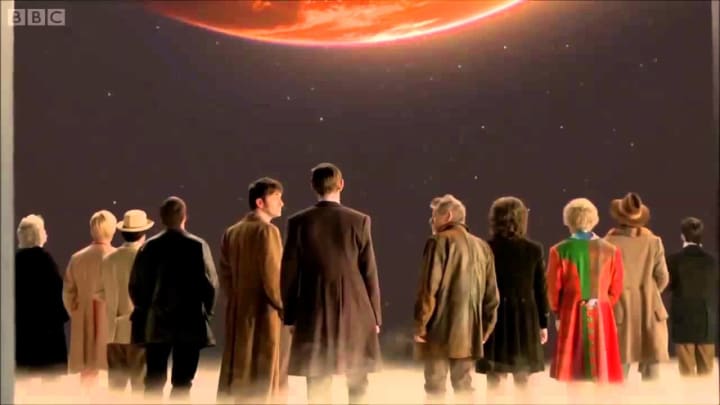
You won't take nonsense.
The only thing that spoils the impression, however, is the script itself, where the “old” Doctor is made to be a wee sexist, cracking jokes about all ladies being made of glass, and declaring the need of feminine hands in cleaning the TARDIS. I get the point that writers wanted to bring home: old Doctor is from old times, now it’s all different. Indeed, with the cast being more diverse, and the first female Doctor about to enter the scene, they needed this impression. It helps the viewers to open their minds a bit, to see that not all that is old and traditional is worth holding on to.
HOWEVER (and I will stand my ground until my final breath), the writers of the new series weren’t faithful to the REAL first Doctor—and if you saw the classic series, you would know that he wasn’t like that at all. Seriously, I believe that the screenwriters should have done more thorough research, or maybe hired some extra paper help to do the research for them. Yes, Hartnell’s Doctor was grumpy and patronizing—but to all, regardless of gender (cue Ian and Barbara). He felt (and rightly so) more knowledgeably experienced than his human companions. He was a bit overprotective of Susan, but she was his granddaughter after all. I don’t recall any distinction he would make between his male and female associates.
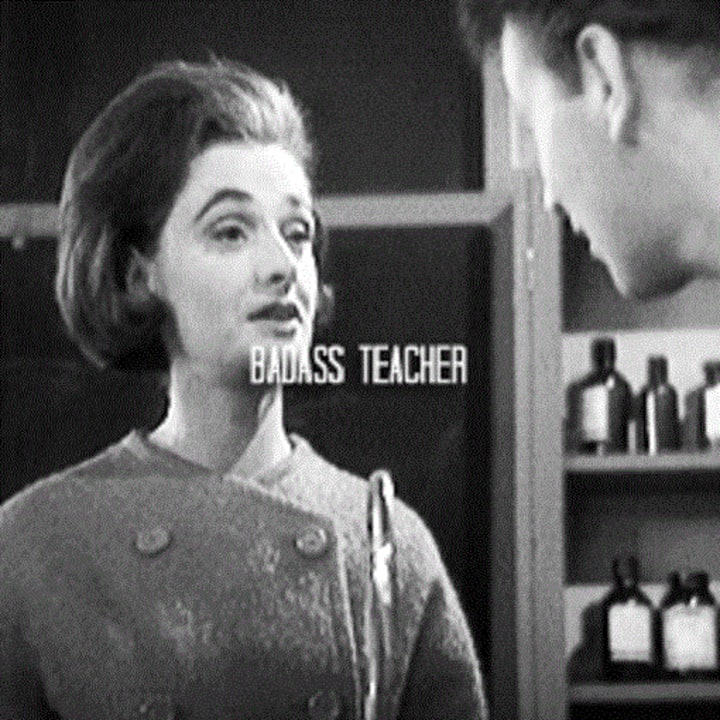
Barbara—a headstrong history teacher from the 60s once lamented Ian’s tendency to treat her and Susan “like Dresden china” just because they are women. Yet never was such reproach aimed at the Doctor. From the very first episode, she always was the first one to go and explore any ancient ruins and wild jungles—and the Doctor never had a problem with that. Ian had. But then, again, he was only human. In fact, Barbara was a pretty badass character who saved the day more than once by being brave, resourceful, resistant to brainwashing, or simply by smashing something up.
You'll notice cultural influences.
If you are one of the Outlander fans, you will find spotting the parallels with Jamie McCrimmon’s character priceless!
And even though the Outlander author, Diana Gabaldon says that the only thing that inspired her was the beguiling image of a kilt-clad young Scotsman, to a viewer familiar with both series, Outlander totally reads like a fan fiction inspired by Doctor Who.
Let’s begin with the first and very obvious connection—time travel. Then, again, the exact point in history—Jamie McCrimmon was whisked away (and later returned) right after the battle of Culloden Moore, where Jacobite rebellion was drowned in blood. That’s not some vague “lad in a kilt” sort of reference, but the exact same time and place.
If that weren’t enough—the titles from the original Doctor Who literally say Jamie Frazer (combining the character’s, and the actor’s name).

It’s hardly a coincidence also that both Jamies share so much in common: a head of a hair, and the widest smile, a disarming sense of humor, a quick wit, open mind, adaptability, readiness to accept the inexplicable fantastic changes, easy-going trusting nature, self-reliance, inventiveness, chivalry. And they both are helluva fighters, especially when it comes to protecting their friends!
Jamie McCrimmon befriends first Victoria, then Zoe, who are both girls from the future for him (Victoria being from the 19th and Zoe from the 21st century) with ease, without being insecure, although both girls surpass him in their understanding of science. He appreciates their intelligence and independent spirits, not unlike Jamie Frazer from Outlander who is the only one to appreciate the same traits in Claire.
Finally, one scene recovered after forty years of oblivion, "The Enemy of the World," could even provide the inspiration for the character of Black Jack Randall, and the whole conflict. Just watch the sadistic lustful look on Benik’s long face.
For the Trekkies out there, there are episodes in the first and the second Doctor eras reminiscent of the original series of their beloved franchise (“The Daleks,” “The Keys of Marinus,” “The Sensorites,” “The Rescue," “The Space Museum,” “Galaxy 4,” “Mission to the Unknown,” “The Ark,” and many others). In the “Wheel in Space” even the soundtrack with eerie soprano reminds you of Star Trek. Cybermen with their “Resistance is useless. You will be altered to be one of us” are practically the proto-Borg, and the Dominators are kind of like Romulans really.
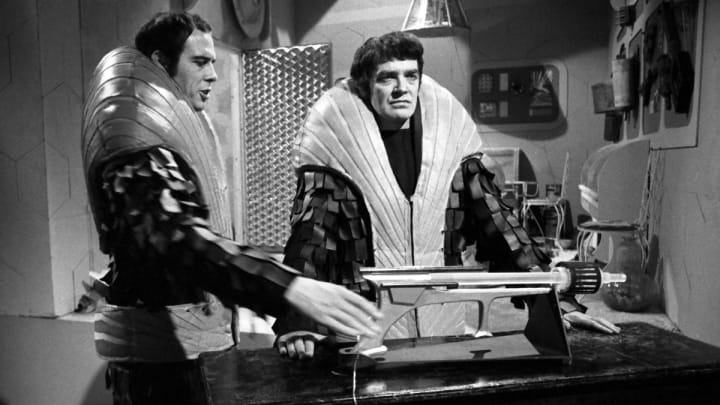
I am not bold enough to imply that one series influenced another one—that must have been tropes answering the popular demand in both cases. Still, if you are a Star Trek fan, looking for some similar experiences, you should definitely check out those episodes of Doctor Who.




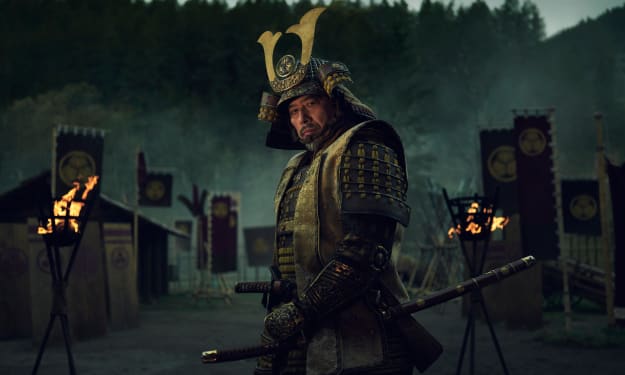

Comments
There are no comments for this story
Be the first to respond and start the conversation.